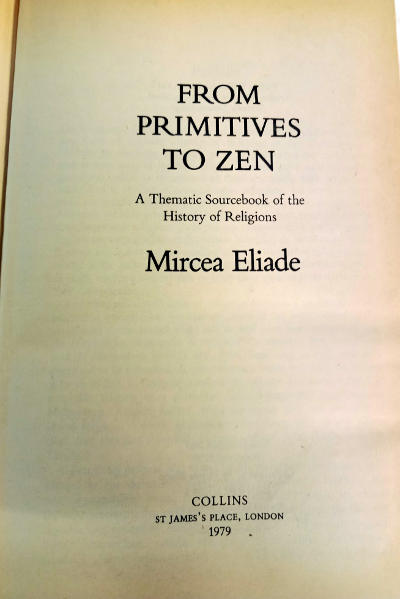A very thorough look at the religious traditions of the world, arranged according to themes such as ritual, myths, eschatology, death, forms of asceticism, and more. Along with its fascinating insights, one of the most valuable things about this book is its exploration of lesser-known traditions such as indigenous Australian, African, Sumerian, and Southeast Asian shamanism (such as the Dayaks).
From jacket flap:
A comprehensive anthology, this source-book contains the essential documents from all the main religious traditions except Judaism and Christianity, arranged according to theme. From Primitives to Zen is of vital help and importance in confronting and understanding the religious lives of ancient and non-Western people.
Contents include (but are not limited to):
African High Gods
North American Indians
Gods of the Ancient Near East, Ancient India, and Japan
Greek Gods and Heroes
Islam
Myths of Creation and of Origin
The Creation of Man
Myths of the Origin of Death
Sacred World, Sacred Life, Sacred time
Types of Sacrifice
Rituals
Prayers and Hymns
Patterns of Initiation
About the author (from Wikipedia):
Mircea Eliade (1907 – April 22, 1986) was a Romanian historian of religion, fiction writer, philosopher, and professor at the University of Chicago. He was a leading interpreter of religious experience, who established paradigms in religious studies that persist to this day. His theory that hierophanies form the basis of religion, splitting the human experience of reality into sacred and profane space and time, has proved influential. One of his most influential contributions to religious studies was his theory of Eternal Return, which holds that myths and rituals do not simply commemorate hierophanies, but, at least to the minds of the religious, actually participate in them.



